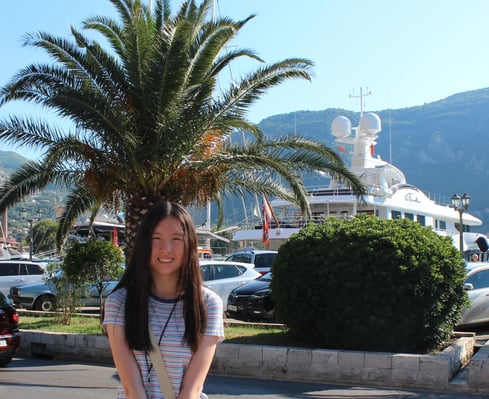While one might think that the process for editing a poem would require a different approach than editing prose, Lily Wang (US), Best Written Poem winner for our Poetry & Spoken Word competition, finds the same principles apply for both forms. As she says, in editing a poem one must examine “each individual idea from the context of the poem, and judge if it fits in well or seems awkward”—also great advice for editing everything from op-ed to fiction to personal narrative!
Get more of Lily’s tips for writing and editing poetry, learn about the genesis of her prize-winning poem, and more!

What was the genesis of this poem? For example, did it start with an image, an experience, or an emotion you wanted to explore?
I started writing this poem with an image in mind. Part of my messy draft was a scene about the ocean (a source of endless inspiration for me, especially during the pandemic and driving there just to check “if the ocean was still there”) and how the horizon gives off this deception that places so far away were reachable. On the contrary, the pandemic emphasized this distance with the closing of international borders, and during which, my grandmother was diagnosed with lung cancer. In this poem, written to her, I wanted to express this hope for a magical ending, taken and brought closer by the ocean.
Guest Judge Jacob Sam-La Rose said, “There’s so much happening within this poem, and yet it holds together.” How did you manage to encompass so much while still creating a sense of unity?
I like to use a symbol or a picture to give a sense of unity to the poem—for example, the ocean, from a beautiful, almost magical angle. Connecting this theme with the aesthetic and fragile nature of magic and loss, I chose supporting imagery such as the glass bottle, dandelions, and the colors by association. I think that once there is an established overall theme or meaning that ties the poem together, I can add other details and plot that are cohesive.
What was your process for editing this poem, and what tips do you have for other poets editing their work?
After writing a first draft, I often find myself looking at a very long “poem” with fragmented lines and ideas that popped up. The hardest part, I think, is to look at each individual idea from the context of the poem, and judge if it fits in well or seems awkward and if it would be better adding a transition or just deleting it. Once the main images are chosen, I look at the word choice and how each idea is phrased. One piece of advice given to me that I found really helpful was omitting articles that aren’t needed. Lastly, I would also look at the enjambment and/or white space—for example, what does it mean if I placed a line break here? How would the meaning change if it was after another word? Since a line break indicates a pause, there is often an emphasis placed on the last word. The cool thing about poetry is that you can take creative risks, inserting a space or line break, or juxtapose an idea and have fun!
What poets are you reading right now?
Currently, I’m rereading Ocean Vuong’s Night Sky With Exit Wounds and Maggie Nelson’s Bluets—my go-to places for poetry. I also like to read the poem of the day from Poetry Foundation—recently, Josephine Jacobsen’s “The Animals” and also poems that I stumble on in literary journals like Joy Harjo’s “How to Write a Poem in a Time of War.”





